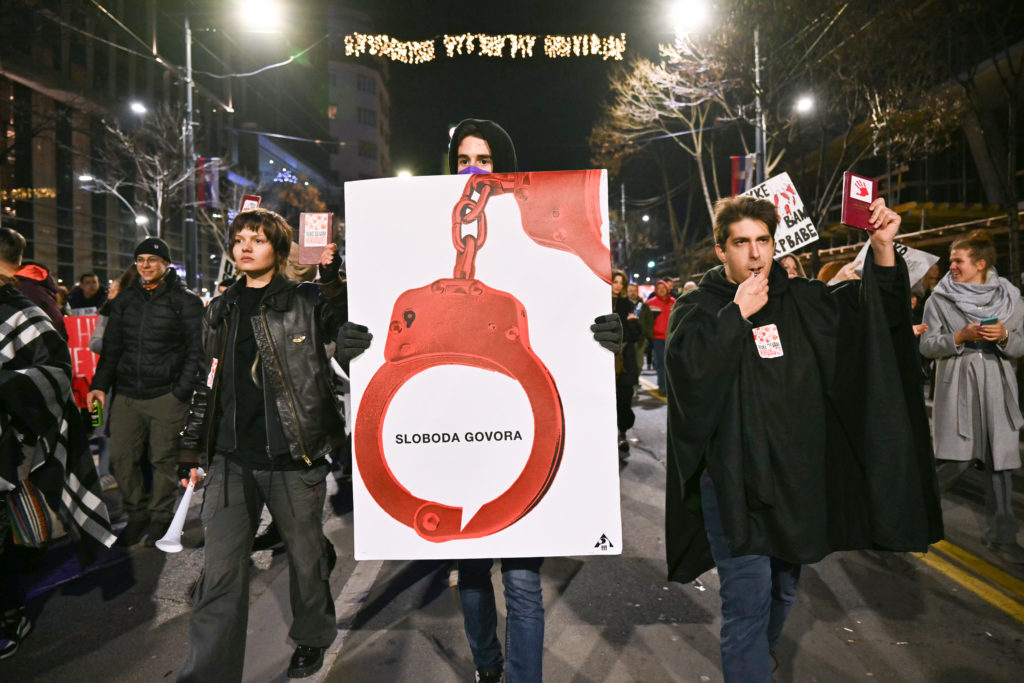Less than three months ago, former power company head Robert Golob did not have a party to contest elections.
Today, he looks set to become the next prime minister of Slovenia after a small Green party he took over garnered more than a third of votes in Sunday’s parliamentary elections and delivered Europe’s latest rebuke of right-wing populists.
With nearly all the votes counted, Golob’s Freedom Movement (GS) netted 34.5 percent, well ahead of conservative premier Janez Jansa’s Slovenian Democratic Party (SDS), which gained 23.5 percent.
Anger over the government’s crackdown on civil liberties propelled the charismatic 55-year-old electrical engineer toward the top job in the Alpine country of two million.
“Our objective has been reached: a victory that will enable us to take the country back to freedom,” Golob told cheering supporters via livestream from his home, where he is in isolation after testing positive for Covid-19.
– Restoring ‘normality’ –
Recognised by his shoulder-length curly hair, a style he says he has had since his youth, Golob is a relative political newcomer.
During the campaign, he toured the country via bus, and his team posted his messages and advertisements on Facebook and Instagram.
He refused to use Twitter “to avoid the temptation of fast fingers”.
Golob has promised to restore “normality”, having billed the elections as a “referendum on democracy”.
In Jansa’s latest stint in office, tens of thousands of protesters have staged regular rallies, accusing the three-time premier of using the pandemic to attack media freedom and the judiciary and to undermine the rule of law.
An ally of nationalist Hungarian Prime Minister Viktor Orban and admirer of US ex-president Donald Trump, Jansa has also clashed with Brussels over media freedom and rule-of-law issues.
Golob has told AFP that he wants the country to “return” to being “West-orientated”.
A former state secretary in charge of energy, Golob also spent time working at the Georgia Institute of Technology in the United States on a Fulbright scholarship.
The father-of-three founded his own energy company in 2002 and ended up heading GEN-I, which promotes solar energy, following a series of mergers.
But he was not re-appointed last year after the government increased its stake to become GEN-I’s major shareholder.
– Inexperience –
Although he had not been politically active since 2014, Golob in January took over the Green party to become its president and renamed it Freedom Movement.
Analysts have pointed to Golob’s inexperience, but said he could partner with the more experienced Social Democrats (SD).
“It’s like a company that abruptly grows,” political analyst Miha Kovac told AFP.
“It has no infrastructure, no know-how, no people who know how to work in parliamentary bodies.”
Ljubljana University professor Vlado Miheljak said he expected Golob “will be able to do a ‘slalom’ between the egos and petty passions.”
“Golob is capable of learning,” he told AFP before the elections.
Throughout the campaign, Golob has largely stayed clear of personally attacking his opponents.
The SDS went to great lengths to attack Golob, making much of his high salary, for example.
This led to Golob releasing his taxes for 2020, which showed his net annual salary to be 196,000 euros ($211,000).
The average monthly net wage in Slovenia in 2021 was 1,270 euros.











